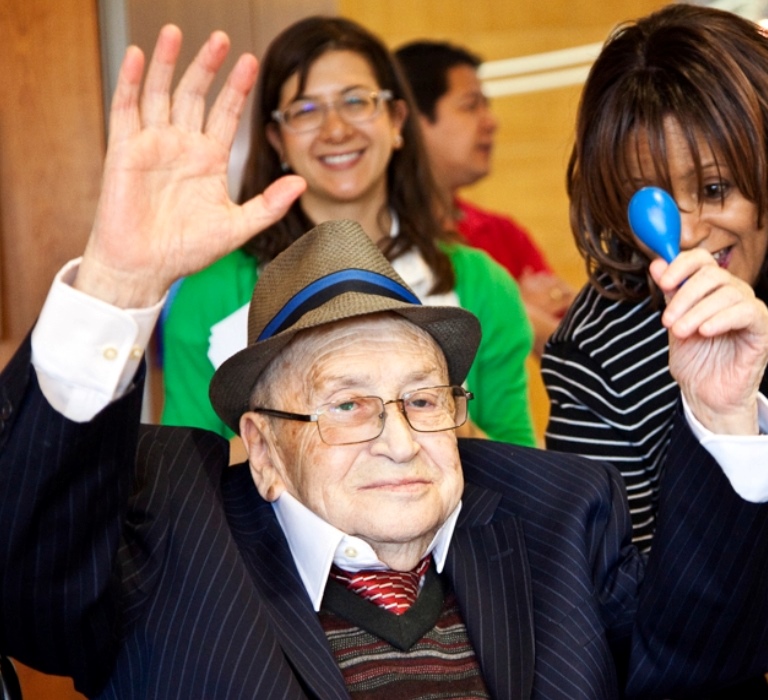Insights and perspectives of dementia care from across the globe
- By:
- University of Bradford
- Published
- Tagged under:
Clare Mason delves in to the unique benefits of a diverse student cohort in online dementia care mapping training.

The Centre for Applied Dementia Studies (CfADS) is renowned for its commitment to person-centred dementia care, and our online Dementia Care Mapping (DCM) courses are a testament to this dedication.
For over 35 years it has been used by care practitioners to improve quality of care and quality of life for people living with dementia in a range of care settings, including care homes, group homes, hospitals and day services.
Whilst DCM™ may have been developed in the late 1980’s by the late Professor Tom Kitwood at the University of Bradford, it has been revised and updated at regular intervals to ensure it continues to be aligned with current care practices.
One of the most distinctive and valuable aspects of our training is the diversity of students who participate, bringing together professionals from various sectors of dementia care, different organisations across the UK, and international participants. This unique mix fosters a rich and dynamic learning experience, setting our courses apart from others in the field.
A rich exchange of knowledge and experience
Our students come from a wide range of backgrounds, including care homes, NHS services, charities, research centres and government organisations. As a result, learners are exposed to different approaches, challenges and best practices from across the dementia care landscape. International participants further enhance the learning experience by offering insights into how dementia care is approached in different cultural and healthcare settings.
This exchange of perspectives not only enriches understanding but also encourages innovative thinking and problem solving in dementia care.

Not only did I learn how to operationalize person centered care, but also met people from around the world. We were able to share stories and talk about the similarities and the differences of Dementia Care in our countries
Michelle Bales
Building a Supportive and Collaborative Network
Another benefit of a diverse student group is the opportunity to build meaningful professional relationships. Students are encouraged to share their experiences and challenges, fostering a supportive network that extends beyond the duration of the course.
Many participants find the connections they make during training become valuable sources of ongoing advice, collaboration and professional development. This network creates a sense of community among those working in dementia care, reinforcing a shared commitment to improving the lives of people living with dementia.
Met amazing people and shared some useful resources and knowledge from their different practise, which I hope to continue with.
DCM participant
Enhancing Critical Thinking and Person-Centred Approaches
The varied backgrounds of our students contribute to deeper discussions and more critical engagement with the DCM methodology. Learners are encouraged to reflect on how the principles of dementia care mapping can be applied in different settings and to consider innovative ways of improving care delivery. By working with others who may have different perspectives and experiences, students develop a more well-rounded and adaptable approach to implementing person-centred care in their own organisations.
the course has been very detailed and has given me the knowledge and tools to complete mapping in services, the biggest impact for me was having focused time to witness the impact of a 5 minute window on someone's day
DCM participant
